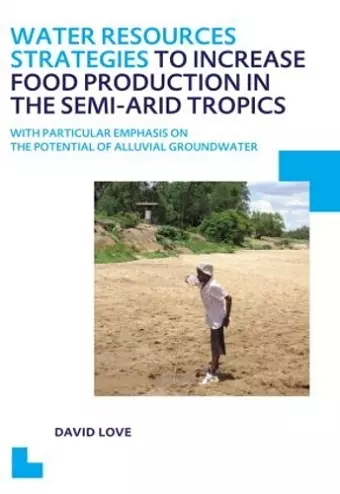Water Resources Strategies to Increase Food Production in the Semi-Arid Tropics
UNESCO-IHE PhD Thesis
Format:Paperback
Publisher:Taylor & Francis Ltd
Published:15th Dec '13
Currently unavailable, and unfortunately no date known when it will be back

Water demand in southern Africa continues to rise, as urban areas expand and as agricultural water demand rises to meet the millennium development food security goals. Water resource availability in the northern Limpopo Basin has declined over the last 30 years, and will decline further under climate change. In this study, water resources modelling is used to quantify the effect of water resources strategies and climatic conditions on water resources availability. This is coupled with water balance modelling to evaluate the potential of alluvial aquifers, which form the beds of sand rivers.
The greatest benefit for the least impact comes from strategies providing for better land and soil/water management, such as changing from maize to small grains, production of livestock fodder and conservation agriculture. Small dams are a key resource to rural communities, and change to Multiple Use Systems through abstraction of water for irrigation has clear benefits locally. There is also great potential for the exploitation of alluvial aquifers for water supply. Better management of existing large dams, together with conjunctive use of alluvial groundwater and several reservoirs could increase productive use of water and significantly improve livelihoods without the construction of new reservoirs.
ISBN: 9781138001428
Dimensions: unknown
Weight: 476g
262 pages